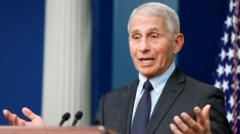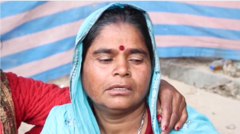As he departed the White House, President Joe Biden issued a series of preemptive pardons intended to protect his family members and notable public figures from politically motivated prosecutions. Among those pardoned were his brothers, James and Frank Biden, sister Valerie Biden Owens, and Covid response chief Anthony Fauci. The outgoing president defended his decision, asserting that it served to safeguard those subjected to relentless political attacks and should not imply any admission of guilt. Biden's pardons also extended to members of the House January 6 riot investigation, which he describes as a necessary measure against unjust prosecution.
Biden's Controversial Preemptive Pardons Spark Political Turmoil

Biden's Controversial Preemptive Pardons Spark Political Turmoil
In his final moments in office, President Joe Biden granted preemptive pardons to family members and key figures, igniting a political firestorm.
In a statement, Biden expressed gratitude for their dedication to public service while highlighting the ongoing threats his family has faced. In contrast, critics, including a spokesperson for former President Donald Trump, condemned the pardons, labeling them as unprecedented attacks on the integrity of the American justice system. Trump has faced scrutiny over his requests for investigations against political foes, and his administration's approach to the January 6 events continues to reverberate across the political landscape.
As the political climate grows more divisive, these developments raise questions about the future of presidential pardons and the implications for accountability in U.S. governance.
Biden's actions have drawn mixed reactions from lawmakers and public figures, complicating the narrative as the nation braces for continued debates surrounding justice and political retribution.
As the political climate grows more divisive, these developments raise questions about the future of presidential pardons and the implications for accountability in U.S. governance.
Biden's actions have drawn mixed reactions from lawmakers and public figures, complicating the narrative as the nation braces for continued debates surrounding justice and political retribution.






















